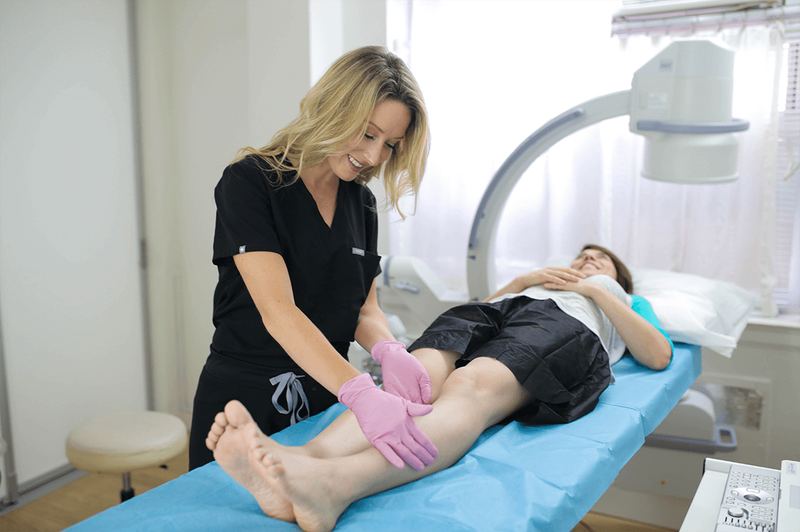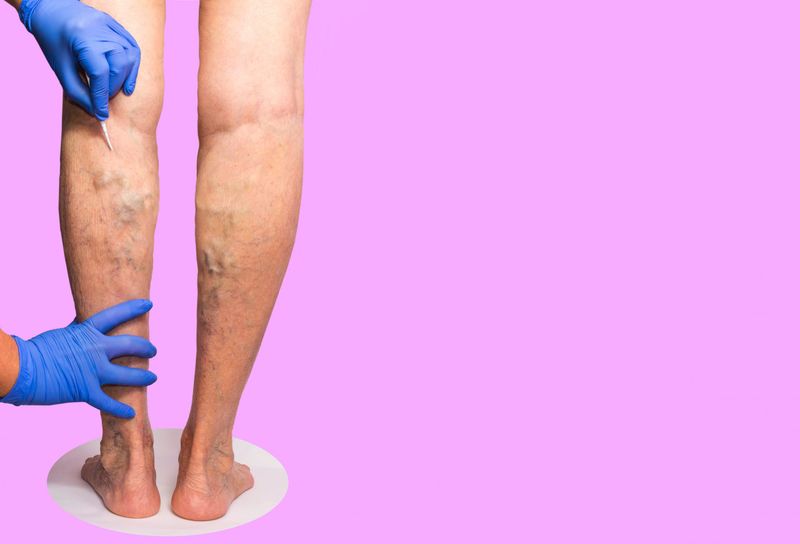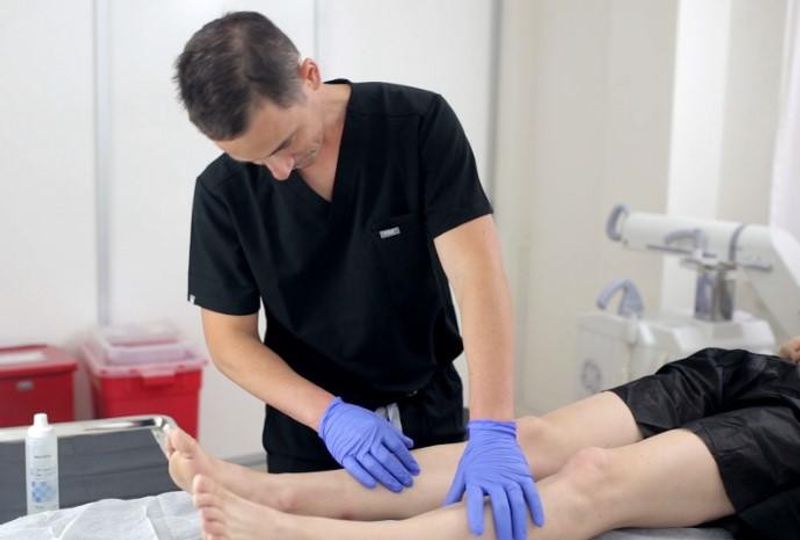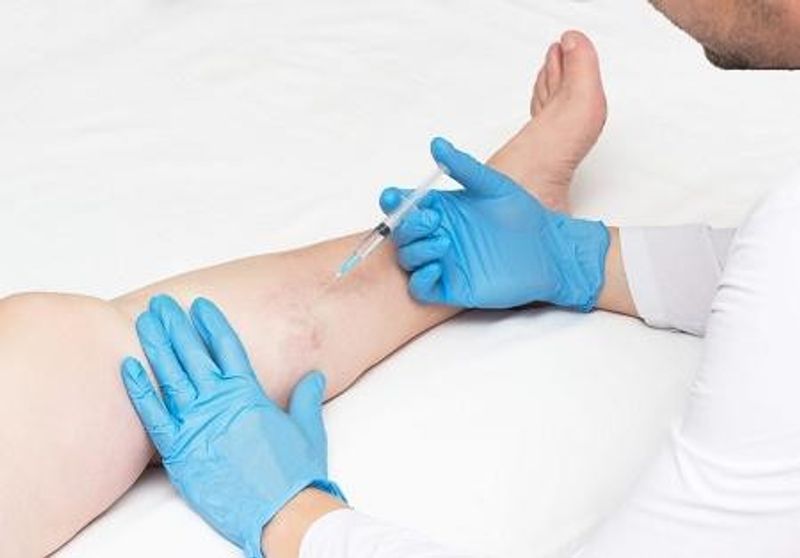How To Choose The Right Varicose Vein Specialist Near You?
Treating varicose veins may be a frustrating, painful, and, to be very frank, a bit frightening affair, especially when you do not have an idea of what to do or where to start. The upside of all this? There are experts who treat this every single day. In case you find yourself on Google asking such questions as, What is a varicose vein specialist called or Where can I find vein treatment near me, then you are already on the right path. Continue reading the article in case you do not understand what to expect, how to find a vein specialist in your area, or how to find a vein specialist.
So, what doctor treats varicose veins?
You may ask yourself the following question: What kind of specialist treats varicose veins?. The obvious answer is a phlebologist. This is the posh title of a doctor of the veins. But the thing is, this does not end here. There is also a high number of vascular surgeons and interventional radiologists who specialize in the treatment of veins. These physicians specialize in the diagnosis and treatment of any problems that your blood vessels have, even those troublesome bulging varicose veins.
What is a vein specialist called?
The professional name mentioned above is phlebologist, although not every single vein doctor has to be referred to as such. Others may be certified vascular surgeons or interventional radiologists. The most important thing to consider is that the doctor must have experience in the field of treating varicose veins. You do not want a person who performs this after work as an extra hobby but rather as a day-in and day-out activity.

What to Expect at a Vein Clinic?
You may start by looking up a vein treatment center or typing in "Long Island vein treatment," and now it is time to understand what to expect from your initial appointment.
Most vein clinics will start with a consultation. You will go over your problems, such as swelling, pain, or that heavy sensation in your legs. They will probably perform an ultrasound to see how your blood is flowing in your veins. Based on that, they will prescribe a course of action.
Common vein treatments include:
● Sclerotherapy (injection of solution to seal off small veins)
● Laser treatments
● Radiofrequency ablation
● Microphlebectomy (procedure of removing veins with small cuts)
None of these involve an overnight stay in the hospital and tend to have a rather fast recovery process.

Finding the Right Vein Treatment Near Me
So, how do you actually find the right varicose vein specialist near you? Here are a few tips:
● Verify Credential: Find a physician who is board-certified in vascular medicine or vascular surgery.
● Experience: The more procedures they have performed, the better.
● Technology Matters: Pick a clinic that offers the most up-to-date non-invasive or less invasive therapy.
● Read Reviews: Reviews by people who have pursued the reason behind your wish to do so can offer you an approximate idea of what it will be.
● Location: In case you happen to be nearby, just inquire about Vein Treatment Long Island, and you should get something right in your backyard.
Final Thoughts
You do not have to be overwhelmed in selecting the right specialist. Begin with the question, what does a vein clinic do? Or what is a vein doctor called? Next, search for the vein treatment near me that provides the service of treating veins and look through their reviews. On Long Island, it is easy to find plenty of highly skilled practitioners who will make you look and feel great. Keep in mind: vein problems are not rare and indeed curable. A good physician will make you stand on your feet (physically) in a very short time.
Why Should You See a Vascular Doctor Sooner Rather Than Later?
Many people overlook early signs of vein problems, assuming symptoms like leg pain or varicose veins are harmless. However, ignoring these early warnings can lead to more serious health issues. If you've been wondering when to see a vascular doctor, the answer might be sooner than you think. Getting timely care from vein treatment doctors can protect your overall vascular health and improve your quality of life. In this article, we’ll explain why early intervention matters, what vein treatment centers offer, and what a vein clinic does to help you stay healthy.
What Are the Early Signs That You Need Vein Treatment?
Some symptoms may seem mild at first but signal underlying vascular issues. These include:
- Swollen legs or ankles
- Aching, throbbing, or heaviness in the legs
- Visible veins (spider veins or varicose veins)
- Skin discoloration or changes in texture
- Slow-healing leg wounds
- Restless legs at night
If you experience any of these signs regularly, it’s time to consult vein treatment doctors. Early detection leads to easier, less invasive treatments and better long-term outcomes.
Why Waiting Can Worsen the Problem
Delaying treatment for vein issues often allows them to progress. Conditions like chronic venous insufficiency and deep vein thrombosis (DVT) can develop silently but become life-threatening if not treated. Veins that struggle to return blood to the heart can cause clot formation, leading to serious complications like pulmonary embolism.
When you ask yourself “when to see a vascular doctor?”, the best answer is: before your symptoms escalate. By visiting a vein treatment center early, you allow professionals to assess your condition and prevent irreversible damage.
What Does a Vein Clinic Do?
Many people don’t realize how much a vein clinic can offer. So, what does a vein clinic do?
A vein treatment center is equipped with advanced diagnostic tools to identify vascular problems early. Using ultrasound and other imaging technologies, the doctors evaluate the flow of blood in your veins and determine whether you have valve dysfunction, clots, or obstructions.
Once diagnosed, the clinic may offer treatments such as:
- Sclerotherapy: Injection therapy for spider and small varicose veins
- Endovenous Laser Ablation (EVLA): A minimally invasive procedure using laser to close faulty veins
- Radiofrequency Ablation (RFA): Uses heat to treat varicose veins
- VenaSeal™: A medical adhesive that seals malfunctioning veins
- Ambulatory Phlebectomy: Surgical removal of large surface veins
These treatments are typically outpatient and require little to no downtime. The earlier you begin treatment, the easier and more effective these procedures tend to be.
Benefits of Visiting Vein Treatment Doctors Early
1. Preventing Disease Progression
Seeing vein treatment doctors early helps prevent vein disorders from becoming severe. Mild varicose veins can turn into chronic conditions that impair mobility and lead to skin ulcers.
2. Avoiding Complications
Conditions like blood clots, skin infections, and bleeding from varicose veins are avoidable with timely care. A vein treatment center can detect and treat clots before they travel to the lungs or cause deep vein thrombosis.
3. Improving Daily Comfort
Living with constant leg pain, swelling, or heaviness affects your quality of life. Early treatment improves circulation, relieves symptoms, and restores your ability to move comfortably.
4. Boosting Aesthetic Confidence
Varicose and spider veins can impact your confidence, especially in warmer seasons when you want to wear shorts or dresses. Treating these veins early prevents them from worsening and gives you smoother, healthier-looking legs.
5. Minimizing Treatment Costs
Waiting until your condition worsens may require more intensive—and expensive—interventions. Early consultation with vein treatment doctors can save money by minimizing the need for surgery or long-term care.
When to See a Vascular Doctor: Don’t Wait for a Crisis
It’s common for people to ignore leg vein symptoms until they interfere with daily life. But knowing when to see a vascular doctor is crucial. If you have a family history of vascular issues or experience symptoms more than occasionally, it’s wise to seek professional evaluation.
You don’t need a referral in many cases, and most vein treatment centers accept insurance. A proactive check-up can give you peace of mind and may prevent future emergencies.
Final Thoughts
Seeing vein treatment doctors early can be one of the most important health decisions you make. Whether you're experiencing visible varicose veins, unexplained leg swelling, or just want reassurance, don’t delay. A quick visit to a vein treatment center can lead to early diagnosis, simpler treatments, and long-term relief.
So the next time you ask yourself, “What does a vein clinic do?”, remember—they do more than treat visible veins. They protect your circulatory health, improve your comfort, and help you avoid serious complications. Prioritize your vascular health today—because later might be too late.

